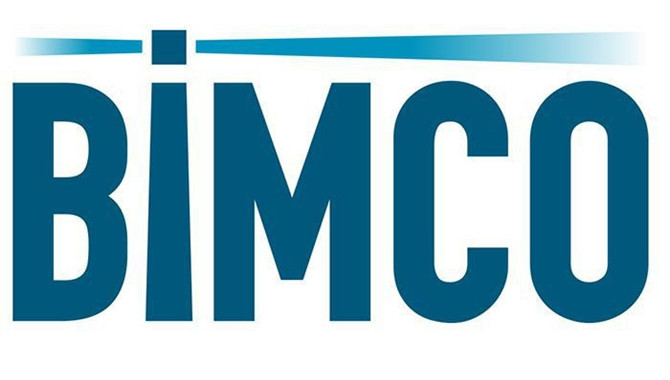
In a report published 9 June 2021, the United Nations Office on Drugs & Crime (UNODC) provides an interesting view into on the piracy problem emanating from the Niger Delta, and explains in detail why there is an urgent need for international cooperation to change the situation.
Industry's concerns fully warranted
In the Gulf of Guinea Declaration on Suppression of Piracy, a large group of shipping stakeholders send a clear signal that a different and much more ambitious approach is needed to suppress Nigerian piracy. The new UN report on Niger Delta Pirates explains in excruciating detail why it is essential that the actions of the declaration are implemented. The report is also a very clear testament to the importance of shipping industry stakeholders coming together to change a situation which is unacceptable and driven by influential stakeholders seeking to retain status quo while advocating alibi efforts that will not produce any tangible results in the short term.
BIMCO strongly encourages shipping companies and other stakeholders to join the biggest flag states and some of the biggest shipowners in the world in the steadily growing call for change in the Gulf of Guinea by becoming a signatory to the
Gulf of Guinea Declaration on Suppression of Piracy. The signatory form can be found
here.
Root causes are spill-over from oil exploration
The UN report describes how piracy has grown out of dissatisfaction with the damaging social and environmental consequences of oil exploration in the Niger Delta, and that the response to the many serious problems has been slow and inadequate. In the past, Niger Delta pirates were associated with militants committed to the emancipation of the Niger Delta, but today many of the same piracy kingpins have transformed into sophisticated criminals with widespread networks, often with close ties to political, law enforcement, and even religious figures.
Pirates attack far from their Niger Delta bases
The report provides a good account for how the pirates' modus operandi has developed over time. Since 2015, pirate attacks have increasingly taken place outside of Nigerian waters, occasionally with the use of motherships. Pirate groups have significantly improved their capacity to operate deep offshore. This shift outside the Nigerian Exclusive Economic Zone (EEZ) is not without exception. All piracy attacks in December 2020 occurred within Nigerian waters. Moreover, this is not a straightforward sign of success in the fight against GoG piracy. While the Nigerian Navy and the Cameroonian Navy's Rapid Battalion Intervention Brigade have helped decrease the number of successful pirate attacks in the Nigerian EEZ, this has not resulted in an overall reduction of piracy incidents. Rather, pirate groups have adapted and expanded their range further offshore.
Kidnap for ransom has become more sophisticated
Pirate groups have displayed considerable improvements in both the degree of organization and capability in their K&R operations over the last few years. More sophisticated pirate camps and hostage holding areas are set up today. This has increased the capability to take a larger number of hostages per incident, as clearly indicated by the statistics' figures. But numbers reportedly fail to tell the full story behind this development. An interviewee hinted at one possible aspect of what is most likely a combination of several factors such as the pirates feeling safe since they dare take so many hostages.
Deep Offshore Pirate groups have also improved their boarding skills. It appears that pirates have now learned to pull the wire down with a grappling hook tied to a rope. Furthermore, while on board, analyses of specific incidents demonstrate strong organization, knowledge about navigation and manoeuvring and, to some extent, the ability to quickly disconnect tracking equipment to hinder easy location by authorities.
An increase in the value of ransom payments has also been observed in recent years. A considerable increase has been observed over the past years, with 2020 rates estimated between $250,000-$300,000 per group of hostages. With this increase, there has also been a shift in ransom being paid in Nigerian Naira to ransom paid in US dollars.
Ransom payments continue to increase, correlated with pirate groups taking more hostages per attack as well as demanding ransom payments per individual rather than per group. Whether cases of ransom payments made per individual mark a general and continuing trend or exceptional cases and circumstances arguably remains to be seen.
Law enforcement is challenged
Law enforcement efforts in the Gulf of Guinea are challenged for several reasons. Firstly, the pirates are known to fight back, and there are several reports of law enforcement personnel being shot and killed in exchange of fire with pirates. At the same time, there are reports of security forces either turning a blind eye to the pirates’ activities or even directly colluding with the criminals, according to the UN report.
The emergence of Secure Anchorage Areas and Security Escort Vessels has given rise to some unintended consequences - generating a business that inherently depends on pirate-insecurity and possibly distorting the very idea of security and attacks.
Read the full UNODC report
The opinions expressed herein are the author's and not necessarily those of The Xinde Marine News.
Please Contact Us at:
media@xindemarine.com


 Ningbo Containerized Freight Index Weekly Commentar
Ningbo Containerized Freight Index Weekly Commentar  Ningbo Containerized Freight Index Weekly Commentar
Ningbo Containerized Freight Index Weekly Commentar  Ningbo Containerized Freight Index Weekly Commentar
Ningbo Containerized Freight Index Weekly Commentar  BIMCO Shipping Number of the Week: Bulker newbuildi
BIMCO Shipping Number of the Week: Bulker newbuildi  Ningbo Containerized Freight Index Weekly Commentar
Ningbo Containerized Freight Index Weekly Commentar  Ningbo Containerized Freight Index Weekly Commentar
Ningbo Containerized Freight Index Weekly Commentar